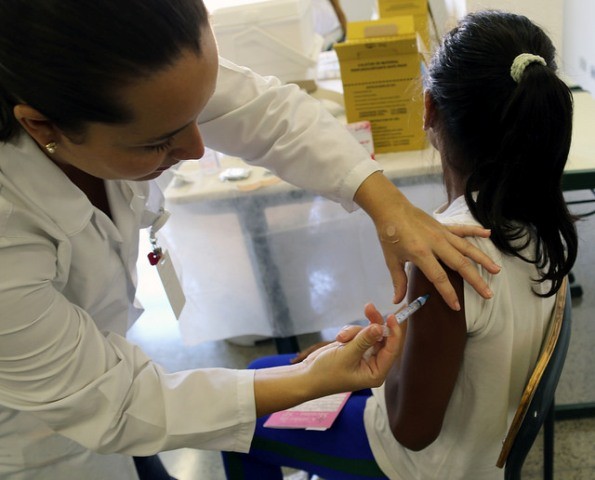CDC Finds Very Few American Teens Receive HPV Vaccine

The number of American teens receiving vaccination for human papillomavirus is 'unacceptably low', find health experts.
The U.S. Centers for Disease Control and Prevention (CDC) found in its recent survey that a majority of teens still miss their HPV vaccines despite creating prominent awareness on risk of cervical, anal and oral cancer caused by the sexually transmitted virus. The agency officials believe doctors and health experts fail to push teens to get HPV shots and warn against the possible health dangers that manifest in later years, reports the Boston Globe.
Their data from the 2013 National Immunization Survey revealed only 57 percent of girls and 35 percent of boys between ages 13 and 17 had on dose of HPV vaccine compared to 86 percent of both boys and girls being immunized against tetanus, diphtheria and petrussis.
The CDC recommends at least three doses of HPV vaccine for prepubescent children before they become sexually active to shield against the virus. The results saw Massachusetts as the only state that fared good with 62 percent of girls and 53 percent of boys who had at least one dose of the vaccine. However, the researchers recorded a slight improvement compared to last survey data on the number of boys who were protected against HPV.
They add the doctors and pediatricians must put more efforts to promote the benefits of vaccine among adolescents and the younger population. This may avert as many as 27,000 cases of cancer related to HPV in the U.S. every year.
"We were disappointed with the overall findings. When a teen is in a doctor's office and receives another vaccine and not HPV, that's a missed opportunity," Anne Schuchat, assistant surgeon general and director of CDC's National Center for Immunization and Respiratory Diseases, said in a press briefing, reports the Boston Globe.
In addition, many surveyed parents reportedly were not instructed by pediatricians and health specialists about annual checkups or HPV vaccine. Only three-fourth of the parents said their children were immunized because their doctors recommended. Many children skipped their HPV doses as their parents beleived that vaccines have adverse effects. The side-reactions of the vaccine include mild redness, pain and swelling in the injected area. Apart from these, patients may experience temporary effects like dizziness, nausea and headache.
"I personally feel it's a very safe vaccine. Side effects are pretty minimal,' said Courtney Gidengil, a vaccine safety researcher and instructor in pediatrics at Boston Children's Hospital, reports the Boston Globe.
She adds the reason why HPV has low acceptance is, "Either the conversation isn't happening in the doctor's office, or parents are declining it when offered."
Jul 25, 2014 08:55 AM EDT




